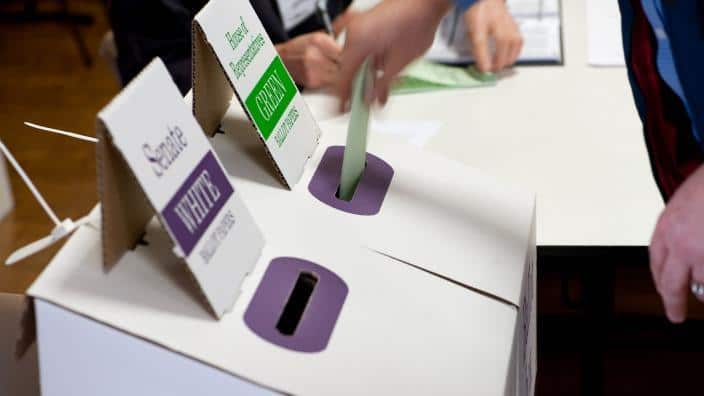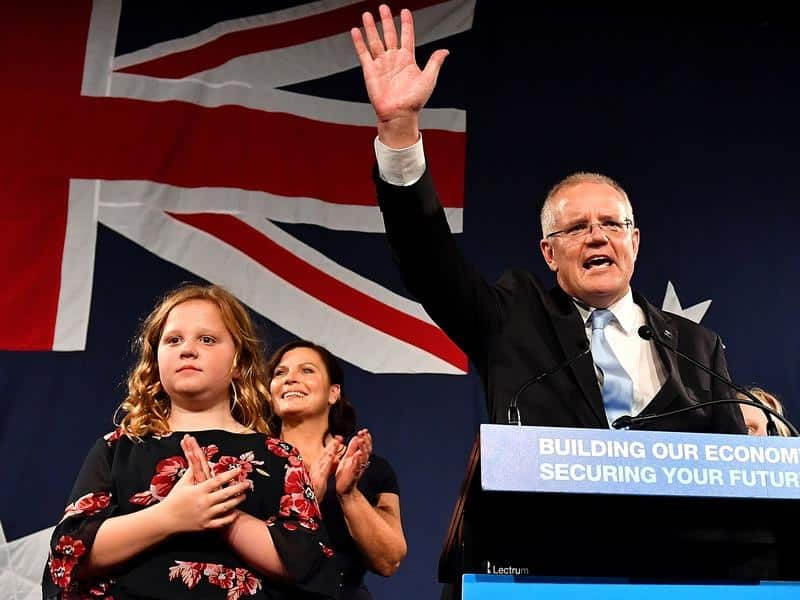The performance of local candidates was critical in changing the minds of a growing number of "volatile voters", new research examining the shock federal election result has found.
Australian National University researcher Nicholas Biddle has examined the impact of "voter volatility" on the surprise coalition election victory in May.
He looked at changes in who Australians said they would vote for in the lead-up to the poll, compared to who they actually went with on election day.
More than a quarter of those surveyed ended up voting for a different party to the one they had indicated.
"We saw a swing towards the coalition during the election campaign that came mainly from those who'd intended to vote for minor parties, or didn't know who they would vote for," Associate Professor Biddle said.
"The 'other' and 'don't know' voters appear to have had a big impact on the May election."
The research paper, released on Tuesday, has also shed light on the types of people who changed their minds.
"Females, the relatively young, and those in more disadvantaged neighbourhoods were most likely to change their votes," he said.
"The most common reason given was their views on the local candidate had changed." Scott Morrison defied all expectations to guide the coalition to victory on May 18, with every published poll pointing to a Labor win.
Scott Morrison defied all expectations to guide the coalition to victory on May 18, with every published poll pointing to a Labor win.

Polling leading up to the election failed to predict the coalition win. Source: Supplied
Associate Professor Biddle said looking at those who didn't intend to vote for the coalition, but ended up doing so, could help explain pollsters failing to predict the result.
Polling 'far from perfect'
He said the results proved who a person said they would vote for on a particular day was a "far from perfect" predictor of who they would support.
"More care and transparency about how these groups are treated should be a real focus of any adjustments to polling in Australia," he said.
"In the end, polls are just sample surveys, often undertaken on a small percentage of the population. "There's a considerable skill and science around turning that into something more meaningful. Election polls tend to get pretty close, but like any survey, are prone to errors."
"There's a considerable skill and science around turning that into something more meaningful. Election polls tend to get pretty close, but like any survey, are prone to errors."

Prime Minister Scott Morrison described his party's victory as a miracle. Source: AAP
Population growth a factor
Older, non-indigenous women without a university education and living outside the most disadvantaged areas of Australia were most likely to swing towards the coalition.
"These individuals also tended to be less supportive of population growth," Associate Professor Biddle said.
"And despite the popular narrative, they were no more likely to support populist views."
Those who swung towards Labor tended to be the least risk-averse. "If Labor had been able to convince a slightly larger percentage of those who were relatively risk-averse to change their vote to Labor, the election outcome could have been quite different," Associate Professor Biddle said.
"If Labor had been able to convince a slightly larger percentage of those who were relatively risk-averse to change their vote to Labor, the election outcome could have been quite different," Associate Professor Biddle said.

Opposition Leader Anthony Albanese says Labor needs to refine its messaging on the economy. Source: AAP
Opposition Leader Anthony Albanese was asked about the findings, as Labor conducts its own internal review into the election loss.
Mr Albanese said Labor needs to refine its messaging around the economy and living standards.
"We'll continue to make the assessment as to why we didn't do as well as we were hoping," he told reporters in Sydney.
"To make sure, not so we look backwards, but so we have that information going forwards."


